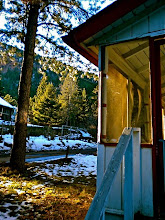
Do you hear the quotation “My life is a perfect graveyard of buried hopes” and clasp your hands to your breast, knowing exactly who said this and what she meant?
Instead of a best friend do you have a bosom friend?
Do you realize the importance of a concluding “E” in the spelling of some names?
Do you hear the name Fitzwilliam Darcy and sink into a swoon?
If you answered yes to any of these questions, this is the book for you.
Polly Madassa is a “twelve-year-old, nineteenth-century girl trapped in the twenty-first century.” Captivated by the ideals of Anne of Green Gables and inspired by the romanticism of Pride and Prejudice, Polly is convinced that she must no longer be “a material girl living in a material world,” but instead she must “become at once a young lady of impeccable breeding, diction, and manner.” Polly’s family owns a bakery which allows her to interact with and observe a number of different people in her small town, and what she sees speaks to her romantic heart: There are people all around her desperately in need of her help in matters of love.
Polly steps in to play matchmaker and to find the perfect love for her sister, Clementine; her bosom friend, Fran’s, father; the dear old widower who owns the kite store; and the curmudgeonly spinster with the vicious little dog. But by meddling in their love lives, she may actually be hampering the course of true love and ignoring her own heart.
Readers will get a kick out of this modern story of a girl who is swept up in the romance of L. M. Montgomery’s classic tale and is trying to live out the ethos of Jane Austen. And any girl who would rather slip on a lovely frock and a hat with a ribbon than pull on a pair of jeans and a t-shirt will identify with young Polly’s sensibilities.
As an added bonus this book is well written. Other than a few too many instances of the word “delicate” the dialogue is great: Polly consistently speaks as though she were in the nineteenth-century, except in times of genuine emotional distress when she convincingly slips into modern speech. And there is a fantastic juxtaposition between modern and old-fashioned. Polly wants to rely upon fate to find the perfect romantic partner for Fran’s father, and she is horrified when he takes the more practical approach of Internet dating. While this is a gentle story, there is real-life crisis between the pages. For example, Fran’s mother left her family for someone she met on the computer. So Polly’s railing at the modern world is at once humorous, convincing and moving.
Very sweet, often funny, and nicely paced, this book is a worthwhile read for any romantic soul.
Possible discussion topics: Changing values, idealized notions of romance, relationships, Anne of Green Gables and Pride and Prejudice.
Some discussion questions to get you started:
- 1. Polly struggles with the notion of Internet dating because of its lack of romance as well as the fact that Fran’s mother left her family after she met someone online. What are your thoughts about online dating versus meeting people in other ways?
2. Anne of Green Gables and Pride and Prejudice are beloved classics. What are your thoughts about Lindsay Eland using them as the basis for Scones and Sensibility?
3. Polly feels like she was born in the wrong century. In what situations do you feel out of place? Have you ever felt like no one understood where you were coming from? What was that like?
4. Polly is a hopeless romantic who believes in “enduring love.” What are your thoughts on romance? Is “happily ever after” a realistic concept? Why or why not?
If you liked this book you might enjoy: The True Confessions of Charlotte Doyle by Avi, The Penderwicks: A Summer Tale of Four Sisters, Two Rabbits, and a Very Interesting Boy by Jeanne Birdsall, Princess Academy by Shannon Hale, Fairest by Gail Carson Levine, The Disreputable History of Frankie Landau-Banks by E. Lockhart, The Mysterious Benedict Society by Trenton Lee Stewart



